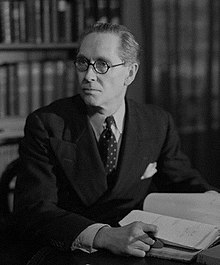The Lord Noel-Baker | |||||||||||||||
|---|---|---|---|---|---|---|---|---|---|---|---|---|---|---|---|
 Philip Noel-Baker in 1942 | |||||||||||||||
| Minister of Fuel and Power | |||||||||||||||
| In office 15 February 1950 – 31 October 1951 | |||||||||||||||
| Preceded by | Hugh Gaitskell | ||||||||||||||
| Succeeded by | Office abolished | ||||||||||||||
| Secretary of State for Commonwealth Relations | |||||||||||||||
| In office 7 October 1947 – 28 February 1950 | |||||||||||||||
| Preceded by | The Viscount Addison | ||||||||||||||
| Succeeded by | Patrick Gordon Walker | ||||||||||||||
| Member of Parliament for Derby South (Derby 1936–1950) | |||||||||||||||
| In office 9 July 1936 – 29 May 1970 | |||||||||||||||
| Preceded by | J. H. Thomas | ||||||||||||||
| Succeeded by | Walter Johnson | ||||||||||||||
| Member of Parliament for Coventry | |||||||||||||||
| In office 30 May 1929 – 6 October 1931 | |||||||||||||||
| Preceded by | Archibald Boyd-Carpenter | ||||||||||||||
| Succeeded by | William Strickland | ||||||||||||||
| Member of the House of Lords | |||||||||||||||
Lord Temporal | |||||||||||||||
| as a life peer 22 July 1977 – 8 October 1982 | |||||||||||||||
| Personal details | |||||||||||||||
| Born | Philip John Baker 1 November 1889 Brondesbury Park, London | ||||||||||||||
| Died | 8 October 1982 (aged 92) Westminster, London | ||||||||||||||
| Political party | Labour | ||||||||||||||
| Spouse |
Irene Noel
(m. 1915; died 1956) | ||||||||||||||
| Children | Francis Noel-Baker | ||||||||||||||
| Alma mater | Haverford College King's College, Cambridge | ||||||||||||||
| Awards | Nobel Peace Prize | ||||||||||||||
| Sports career | |||||||||||||||
Medal record
| |||||||||||||||
Philip John Noel-Baker, Baron Noel-Baker, PC (1 November 1889 – 8 October 1982), born Philip John Baker, was a British politician, diplomat, academic, athlete, and renowned campaigner for disarmament. He carried the British team flag and won a silver medal for the 1500m at the 1920 Summer Olympics in Antwerp, and received the Nobel Peace Prize in 1959.[1]
Noel-Baker is the only person to have won an Olympic medal and received a Nobel Prize.[2] He was a Labour Member of Parliament (UK) for 36 years, serving from 1929 to 1931 and again from 1936 to 1970, serving in several ministerial offices and the cabinet. He was created a life peer in 1977.
- ^ "Philip Noel-Baker; The Nobel Peace Prize 1959". Nobelprize.org. The Nobel Foundation. Retrieved 21 October 2008.
- ^ "Olympic Games trivia for pedants" Archived 9 August 2012 at the Wayback Machine, Canberra Times, 2 August 2012.